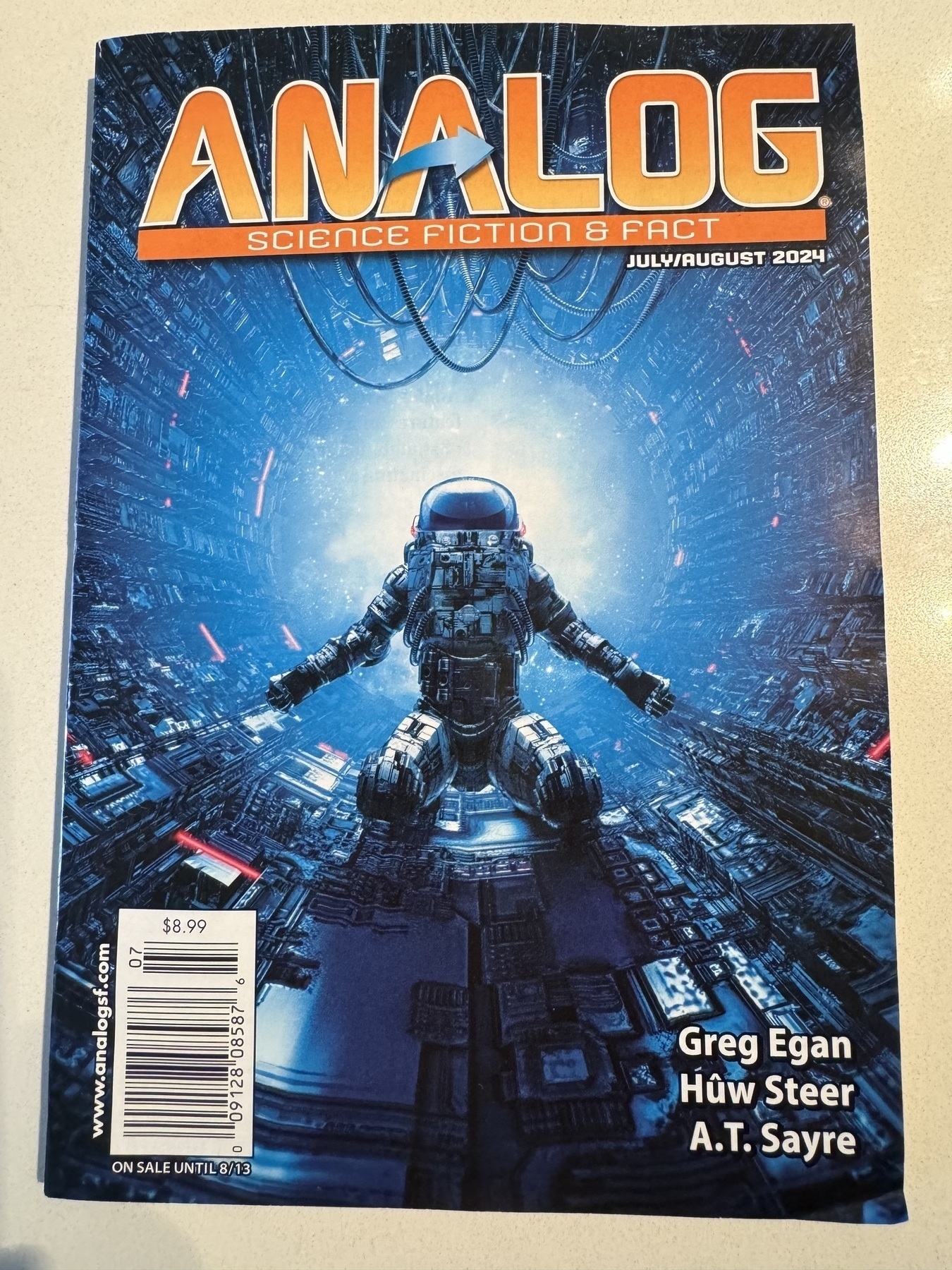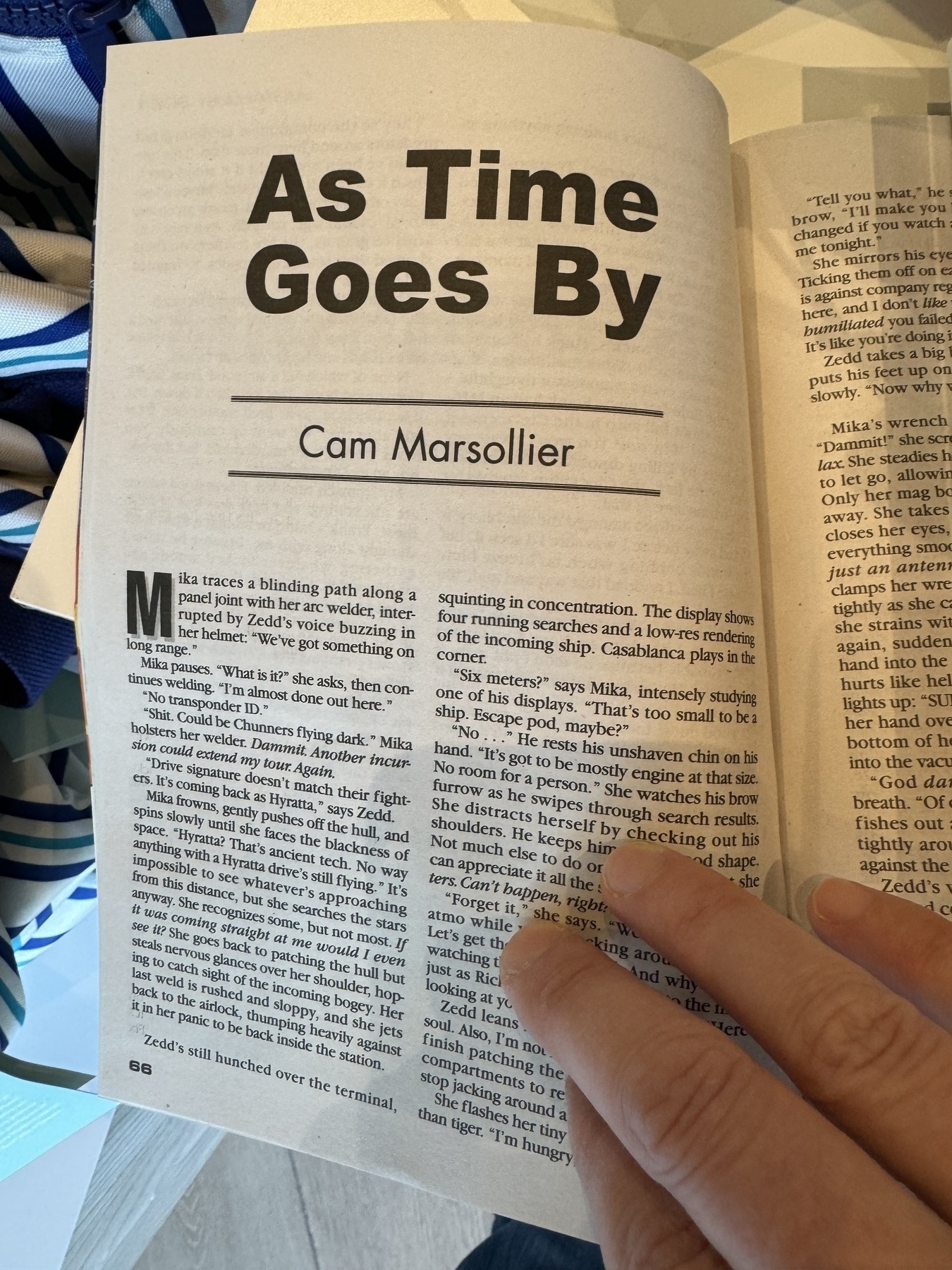Attempting to get back on a more regular blogging schedule here. Maybe not every week, but more often than once a year, at least? 😅
With that in mind, here’s a rundown of the books I read in January and February. As always, they’re listed in reverse-chronological order (so the most recently-read one is listed first, the one I read just before that is second, and so on).
Have you read any of these? If so, what did you think of them?
If you haven’t read them, but end up checking one or more out later, come back and let me know your take 😊
Orwell’s Roses by Rebecca Solint
An excellent and extended reminder of the value of beauty and art, even, or especially, in troubled times.
I’ve been reading Solint’s essays in The Guardian for years, but this is the first proper book of hers I’ve read. Not sure what the others are like, but this one’s variations on a theme (roses, and the cultivation thereof) give the book both plenty of scope but also allows her to go deep on several periods of Orwell’s life and work that normally get overlooked. Part biography, part literary criticism, part manifesto (in the gentlest possible sense), I recommend this to anyone who feels like tackling the major issues of our time — climate change, fascism, corporate power — means we have to forego the many things that bring us pleasure.
Doppelganger by Naomi Klein
Grabbed this one not just because Klein is a great writer (I loved both No Logo and Shock Doctrine), but because I’ve been guilty, multiple times, of the exact doubling she talks about at the start of the book: getting her confused with Naomi Wolf. Which might have been an innocent mistake back in the 90s or early 2000s, but these days, with Wolf firmly embracing conspiracy theories and right-wing fanatics, is a serious category error.
With such a start, this is very different from Klein’s previous books. It’s more personal, for one, with Klein sharing more details about her personal life (her autistic son, for example) that would never have made it into her other work. But it’s stronger for it. Because in making it personal, when Klein talks about the shift in perspectives needed to confront the mirror world that seems to be opening up on the right, she’s talking about work that she’s doing herself, not just finger-wagging (not that she did that in previous books, but with this subject it’s easy to descend to simple shaming).
The result is a book that I’d recommend to anyone on the Left that has spent the last few years watching friends and loved ones disappear down a rabbit hole of conspiracy and lies, and wondering just what the f*ck is going on.
Roman Law and the Legal World of the Romans by Andrew M. Riggsby
I’m currently working on an urban fantasy where the main character is a lawyer, but working in a legal system quite different from both the US and Canadian traditions. I’ve decided to model it after the legal system of ancient Rome, hence this book (which itself was recommendedby one of my favourite blogs on ancient history).
And it was exactly what I needed: a general and readable introduction to both the concepts of Roman law and the sources we have, with an extensive bibliography to serve as a jumping off point for further research.
The Final Girl Support Group by Grady Hendrix
Another nail-biter by Hendrix. Somehow he’s become my go-to when I’m in the mood for horror. His books hit that 80s-nostalgia-but-updated sweet spot for me, and this one was no exception.
Children of Ash and Elm: A History of the Vikings by Neil Price
Less a history and more of a reconstruction of Viking society. Price is interesting in that he’s an archeologist writing history, so he approaches things from a literal ground-up perspective. But he doesn’t ignore the written sources, either (they’re just not his first choice).
He does, however, eschew narrative in favour of trying to capture the general pressures and changes that drove the Viking Age. The result is fascinating in a cultural sense, but the final picture is more like just a blurry-lined sketch, because without a narrative spine to hang things on, he can’t pull all his threads together to weave a unified image.
Contrast Femina, which zooms in on very individual stories told via archeological and written sources to tell a story of women’s roles throughout the Middle Ages. Each story builds on the ones that came before, finding the universal in the particular, and creating a narrative through-line for the book to cohere around.
All Systems Red by Martha Wells
The first in the Murderbot series. I confess I put off picking these up because of all the rave reviews (can it really be that good?) and a bit of snobbery about their length (full price for a novella?).
But it is as good as everyone says. Novella length means all the fat has been trimmed away, leaving nothing but lean prose and tension. Wells is an experienced and skilled writer, and it shows on every page. Doesn’t end the way I expected (or wanted), but can see why it had to.
I’ve already grabbed the next three.













